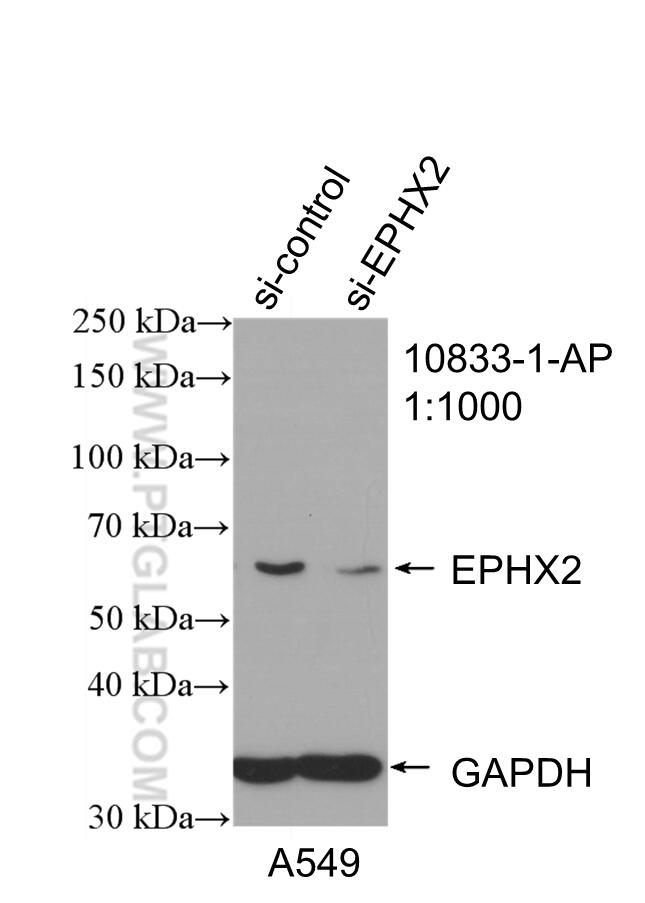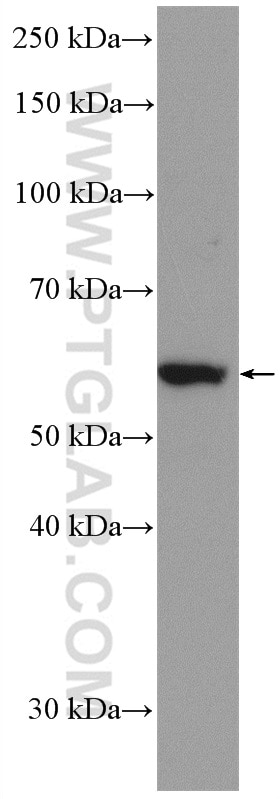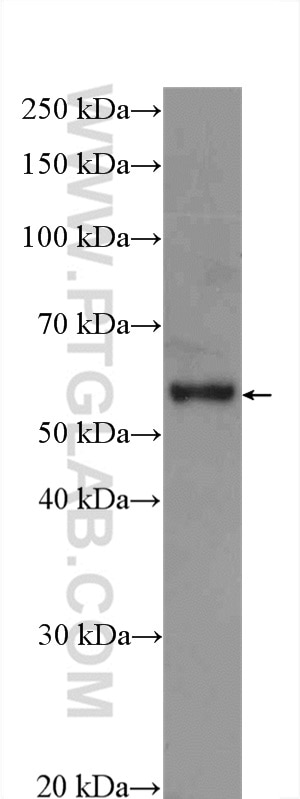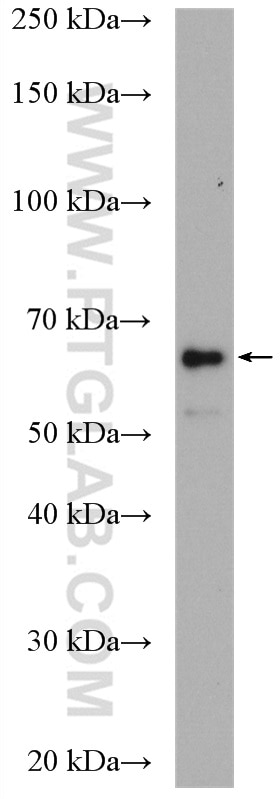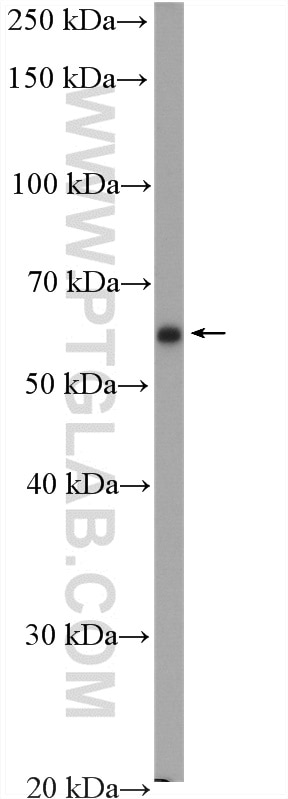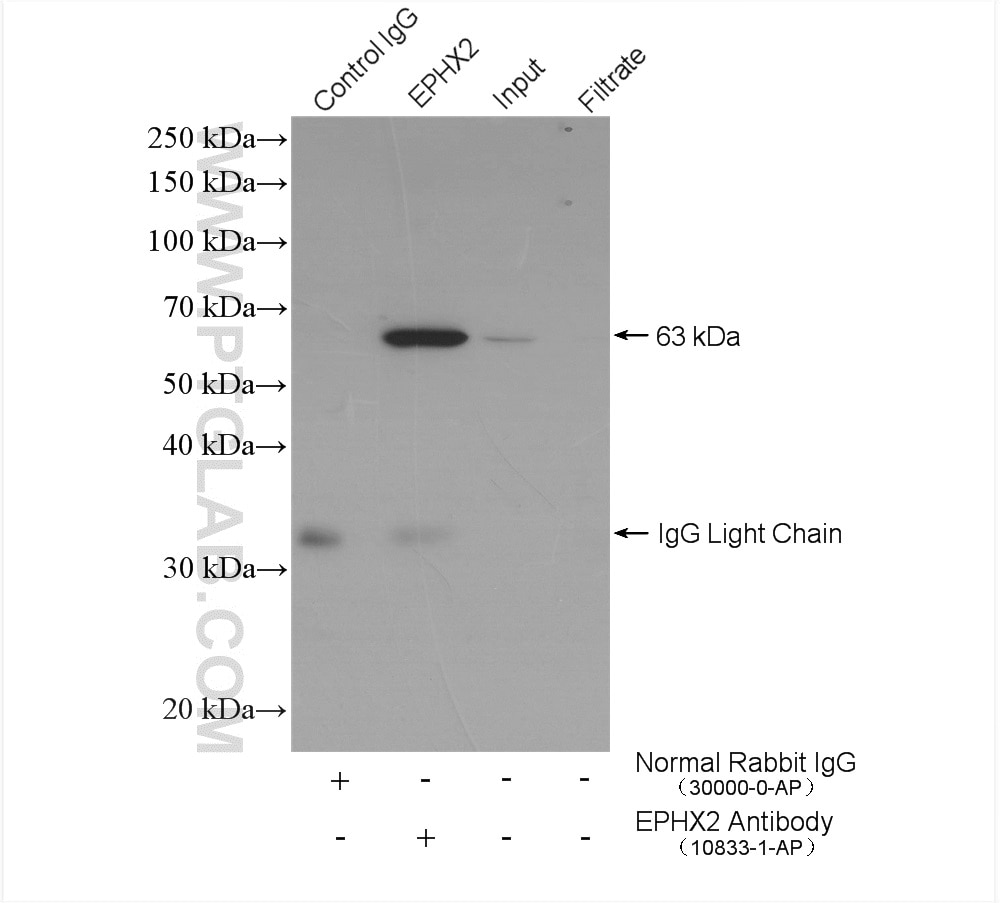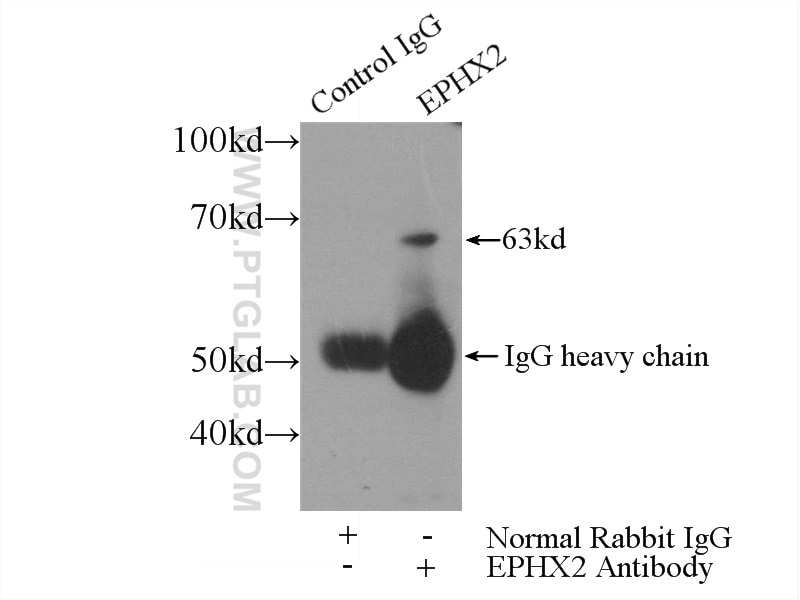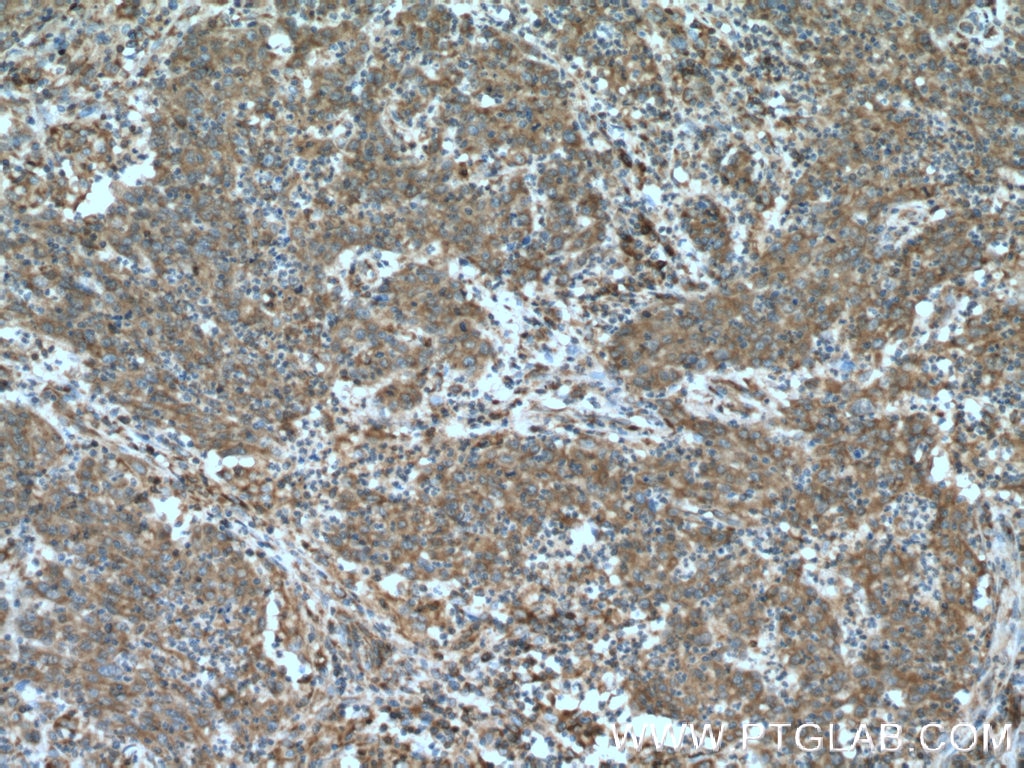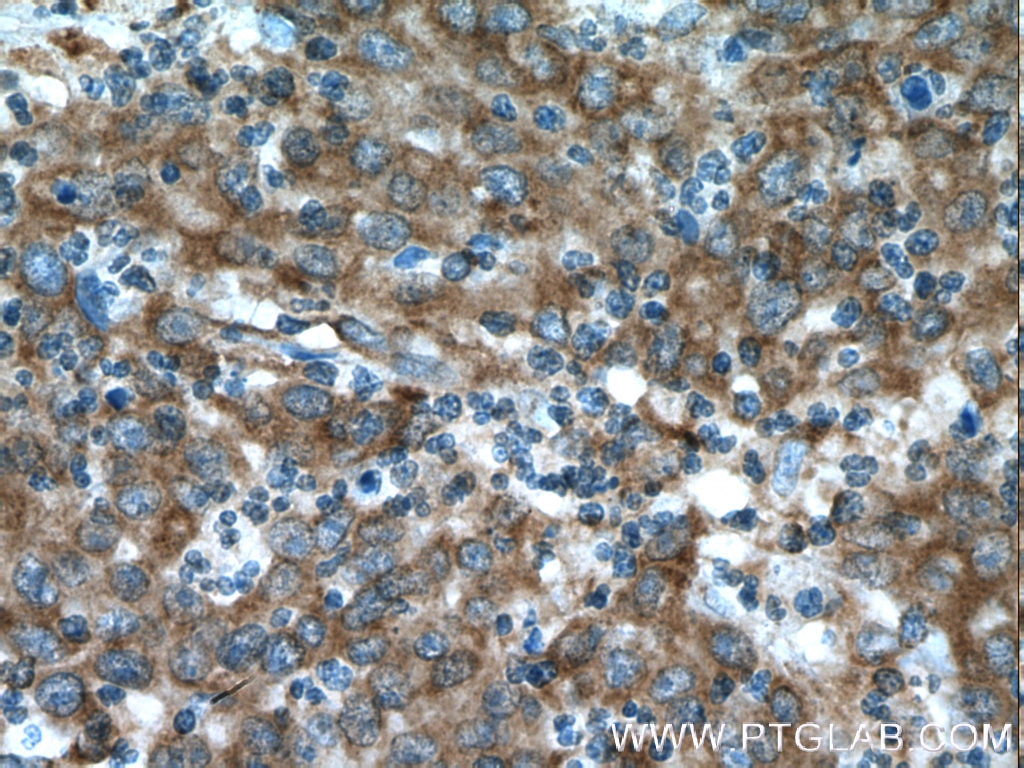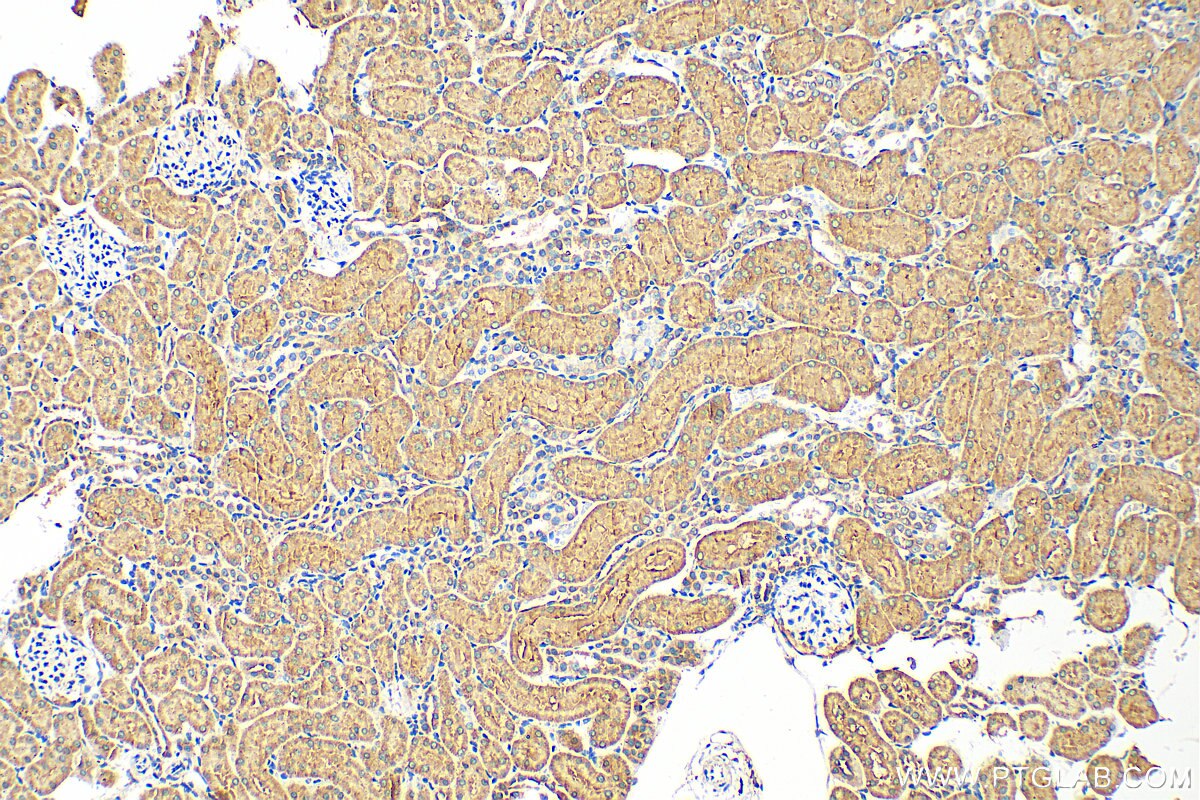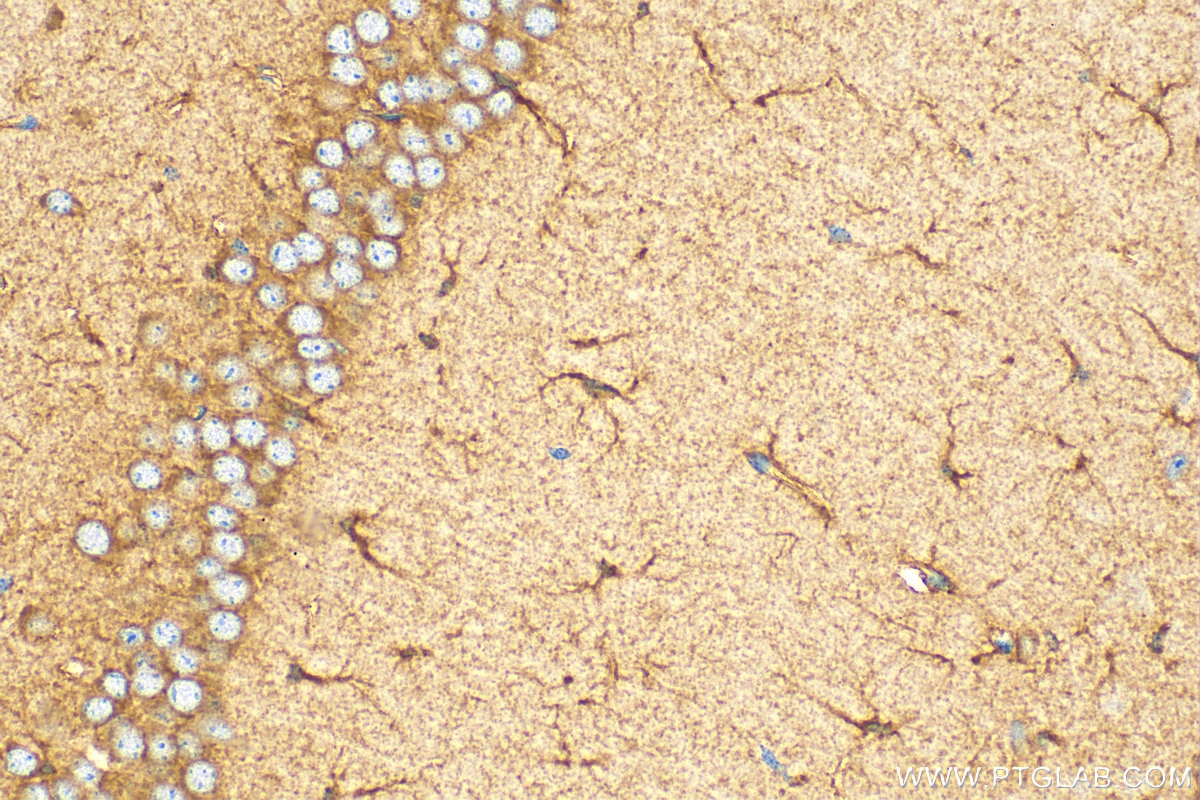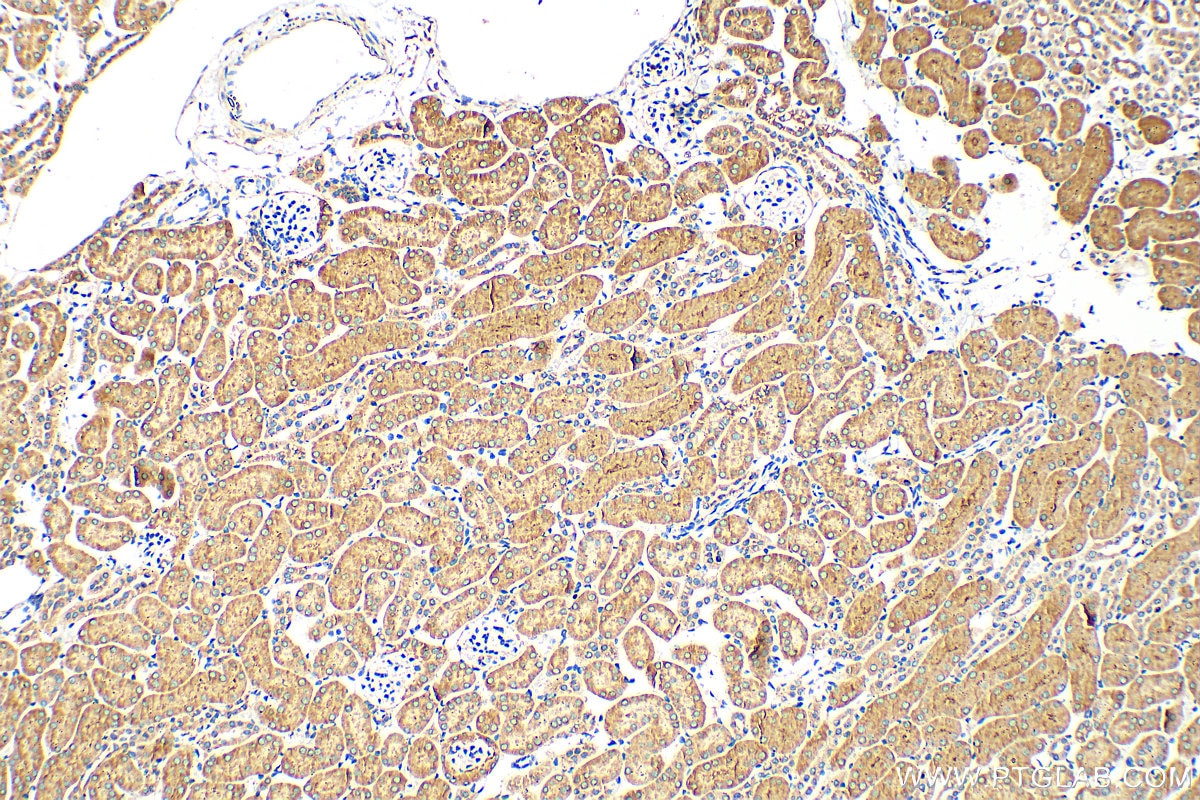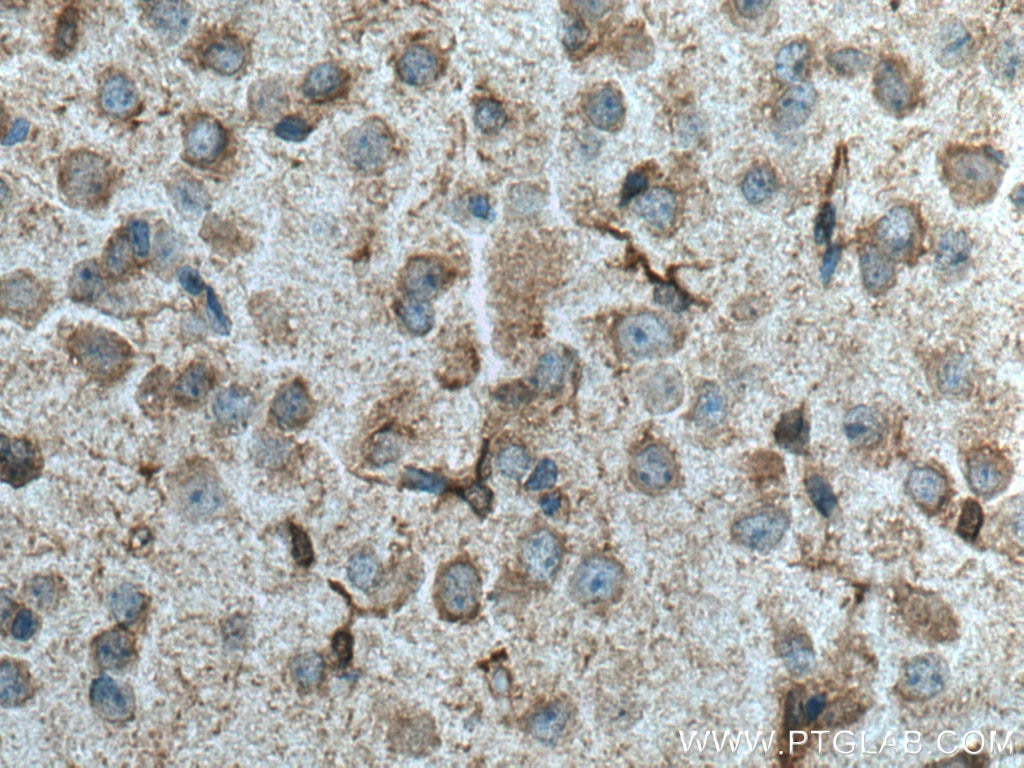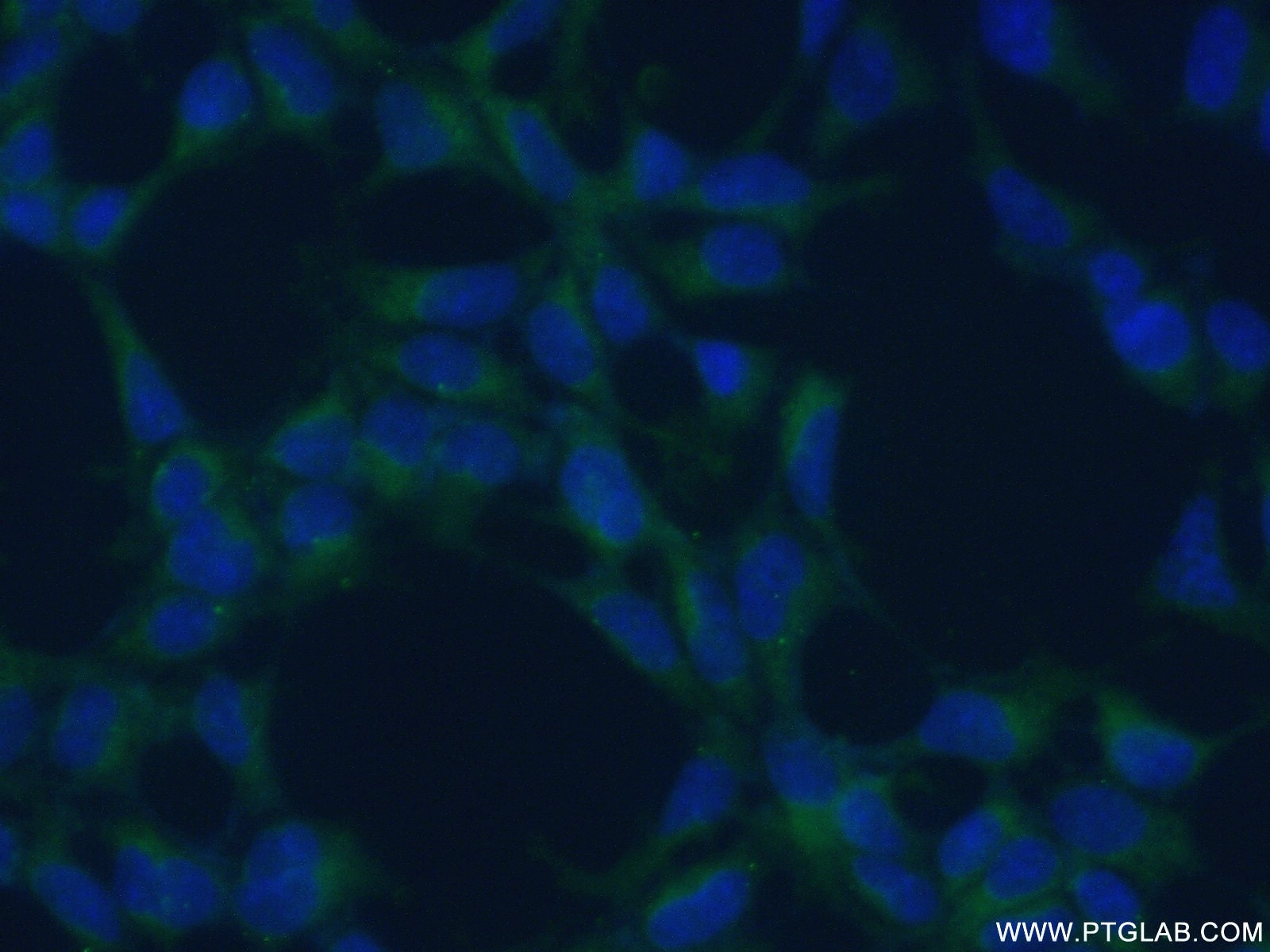Tested Applications
| Positive WB detected in | HEK-293 cells, mouse colon tissue, rat cerebellum tissue, HEK-293T cells, A549 cells |
| Positive IP detected in | mouse large intestine tissue, HEK-293 cells |
| Positive IHC detected in | human colon cancer tissue, mouse brain tissue, mouse kidney tissue, rat kidney tissue Note: suggested antigen retrieval with TE buffer pH 9.0; (*) Alternatively, antigen retrieval may be performed with citrate buffer pH 6.0 |
| Positive IF/ICC detected in | HEK-293 cells |
Recommended dilution
| Application | Dilution |
|---|---|
| Western Blot (WB) | WB : 1:1500-1:6000 |
| Immunoprecipitation (IP) | IP : 0.5-4.0 ug for 1.0-3.0 mg of total protein lysate |
| Immunohistochemistry (IHC) | IHC : 1:50-1:500 |
| Immunofluorescence (IF)/ICC | IF/ICC : 1:50-1:500 |
| It is recommended that this reagent should be titrated in each testing system to obtain optimal results. | |
| Sample-dependent, Check data in validation data gallery. | |
Published Applications
| KD/KO | See 1 publications below |
| WB | See 18 publications below |
| IHC | See 5 publications below |
| IF | See 4 publications below |
Product Information
10833-1-AP targets EPHX2 in WB, IHC, IF/ICC, IP, ELISA applications and shows reactivity with human, mouse, rat samples.
| Tested Reactivity | human, mouse, rat |
| Cited Reactivity | human, mouse, rat, chicken |
| Host / Isotype | Rabbit / IgG |
| Class | Polyclonal |
| Type | Antibody |
| Immunogen |
CatNo: Ag1283 Product name: Recombinant human EPHX2 protein Source: e coli.-derived, PGEX-4T Tag: GST Domain: 212-555 aa of BC013874 Sequence: ELEKVTGIQLLNTPAPLPTSCNPSDMSHGYVTVKPRVRLHFVELGSGPAVCLCHGFPESWYSWRYQIPALAQAGYRVLAMDMKGYGESSAPPEIEEYCMEVLCKEMVTFLDKLGLSQAVFIGHDWGGMLVWYMALFYPERVRAVASLNTPFIPANPNMSPLESIKANPVFDYQLYFQEPGVAEAELEQNLSRTFKSLFRASDESVLSMHKVCEAGGLFVNSPEEPSLSRMVTEEEIQFYVQQFKKSGFRGPLNWYRNMERNWKWACKSLGRKILIPALMVTAEKDFVLVPQMSQHMEDWIPHLKRGHIEDCGHWTQMDKPTEVNQILIKWLDSDARNPPVVSKM Predict reactive species |
| Full Name | epoxide hydrolase 2, cytoplasmic |
| Calculated Molecular Weight | 63 kDa |
| Observed Molecular Weight | 63 kDa |
| GenBank Accession Number | BC013874 |
| Gene Symbol | EPHX2 |
| Gene ID (NCBI) | 2053 |
| RRID | AB_2098246 |
| Conjugate | Unconjugated |
| Form | Liquid |
| Purification Method | Antigen affinity purification |
| UNIPROT ID | P34913 |
| Storage Buffer | PBS with 0.02% sodium azide and 50% glycerol, pH 7.3. |
| Storage Conditions | Store at -20°C. Stable for one year after shipment. Aliquoting is unnecessary for -20oC storage. 20ul sizes contain 0.1% BSA. |
Background Information
EPHX2(Epoxide hydrolase 2) acts on epoxides (alkene oxides, oxiranes) and arene oxides and plays a role in xenobiotic metabolism by degrading potentially toxic epoxides. A number of single nucleotide polymorphisms (SNPs) in human EPHX2 have been linked to cardiovascular disease risk, including increased risk of coronary heart disease, hyperlipoproteinemia, and type-2 diabetes (PMID: 14732757, 16595607, 14673705, 15845398, 17460077). It was observed in many tissues with the band of 63 kDa in the western blot. It has also been reported that the N-terminal domain might promote dimerization of EPHX2 (PMID:21553642).
Protocols
| Product Specific Protocols | |
|---|---|
| IF protocol for EPHX2 antibody 10833-1-AP | Download protocol |
| IHC protocol for EPHX2 antibody 10833-1-AP | Download protocol |
| IP protocol for EPHX2 antibody 10833-1-AP | Download protocol |
| WB protocol for EPHX2 antibody 10833-1-AP | Download protocol |
| Standard Protocols | |
|---|---|
| Click here to view our Standard Protocols |
Publications
| Species | Application | Title |
|---|---|---|
ACS Cent Sci Macrophage Inactivation by Small Molecule Wedelolactone via Targeting sEH for the Treatment of LPS-Induced Acute Lung Injury | ||
Int J Biol Sci Direct targeting of sEH with alisol B alleviated the apoptosis, inflammation, and oxidative stress in cisplatin-induced acute kidney injury | ||
Biochim Biophys Acta Mol Basis Dis Soluble epoxide hydrolase and TRPC3 channels jointly contribute to homocysteine-induced cardiac hypertrophy: Interrelation and regulation by C/EBPβ | ||
Eur J Pharmacol Restoration of ARA metabolic disorders in vascular smooth muscle cells alleviates intimal hyperplasia | ||
Reviews
The reviews below have been submitted by verified Proteintech customers who received an incentive for providing their feedback.
FH Dhruv (Verified Customer) (10-30-2025) | This antibody works everytime for my western blot
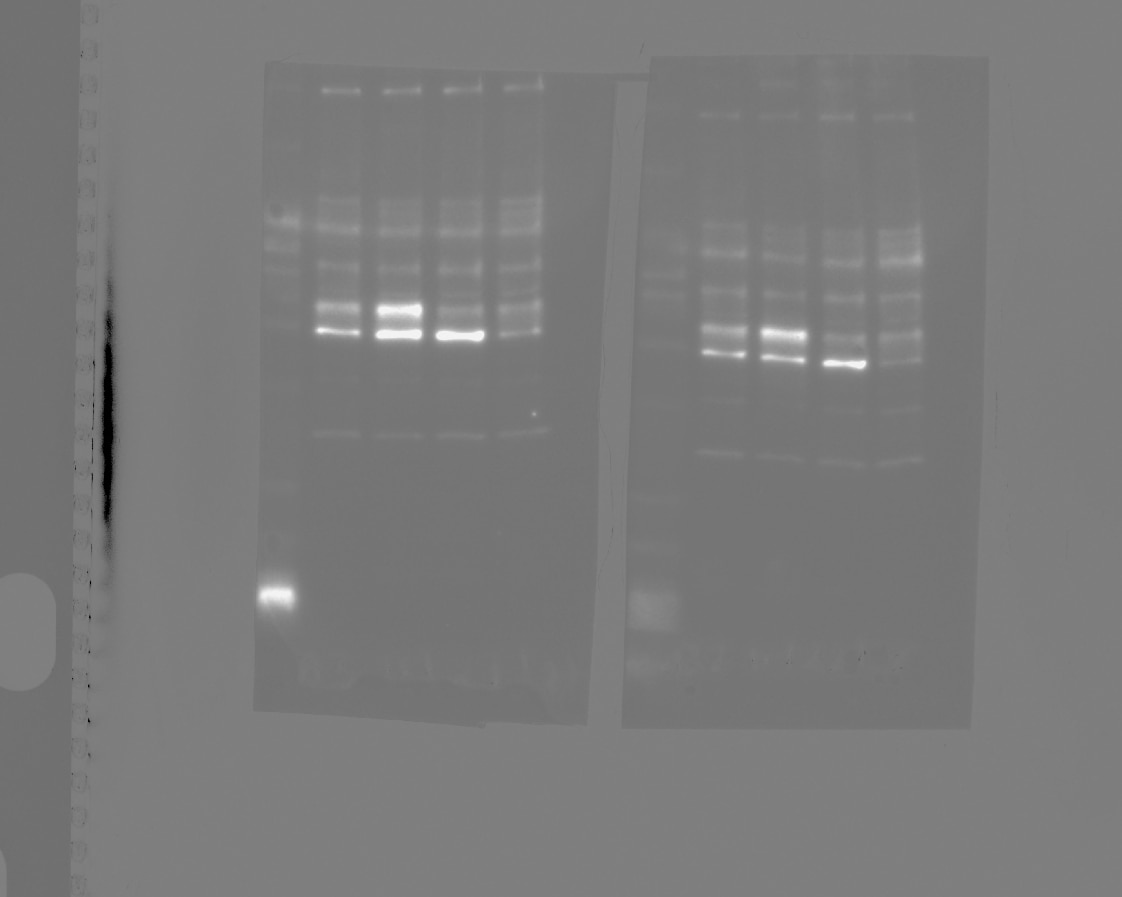 |

